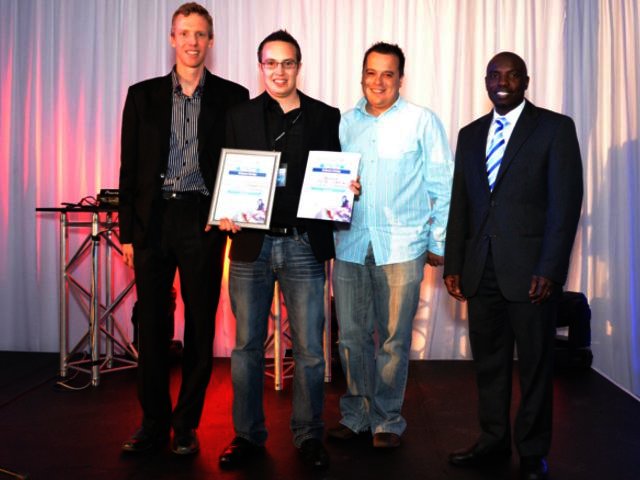PREVIOUS ARTICLENEXT ARTICLE
NEWS

TB detection project wins local leg of Imagine Cup 2011
By Hanleigh Daniels 14 December 2011 | Categories: news
An innovative computer-aided detection programme that can discover tuberculosis (TB) at an early stage, has won a student from the University of Johannesburg (UJ) a place in the global final of Microsoft’s Imagine Cup 2011.
This competition provides student computer programmers with the opportunity to showcase their technological talents and employ these skill sets to solve real world issues.
And the winner is...
Mechanical engineering student Honours IT student at the Academy of Computer Science and Software Engineering at UJ, Joshua Leibstein’s (Team Asclepius) project took top honours in the South African leg of the Imagine Cup 2011. His image processing application assists radiologists in detecting signs of TB and was judged the best entry in the final of the competition at the Birchwood conference centre in Johannesburg. Leibstein will be heading off to represent South Africa at the global Imagine Cup finals in Sydney during July 2012.
This competition provides student computer programmers with the opportunity to showcase their technological talents and employ these skill sets to solve real world issues.
And the winner is...
“I was inspired to create a solution to a serious medical problem in South Africa where TB has the seventh highest incidence in the world and unfortunately endemic under mine workers,” said Leibstein. “The early detection system has the potential to increase the success level of TB-related treatments available to rural and underdeveloped areas.”
Coming in second
Another team from the University of Johannesburg, Team Software Science, ended a close second with their social media analysis application, which has been designed to create a global perspective on any issue expressed in the social media sphere.
Now in its tenth year, the Imagine Cup drew 358 000 entries from 183 countries in 2010. During the local leg of this year’s competition more than 40 entries were received.
The head of Microsoft’s developer and platform team, Clifford de Wit, stated that the judges had been “hugely impressed” by the outstanding quality of the projects and the levels of innovation displayed. “Many of these apps blew me away with their unique approaches to common problems. There is immense talent out there, and we need to nurture and encourage it in every way we can.”
Looking ahead to the global final, students will compete in categories ranging from software design and games development, through to challenges involving algorithms and programming.
Last year’s local winning entry came from Project HAWK and was a crowd-sourced, collaborative information aggregation, reporting and geo-visualisation system that was geared towards community-centric disaster management and neighbourhood improvement.
USER COMMENTS
Most Read Articles
Read

Magazine Online
TechSmart.co.za is South Africa's leading magazine for tech product reviews, tech news, videos, tech specs and gadgets.
Start reading now >
Download latest issue
Have Your Say
What new tech or developments are you most anticipating this year?
New smartphone announcements (45 votes)
Technological breakthroughs (29 votes)
Launch of new consoles, or notebooks (14 votes)
Innovative Artificial Intelligence solutions (29 votes)
Biotechnology or medical advancements (24 votes)
Better business applications (160 votes)



